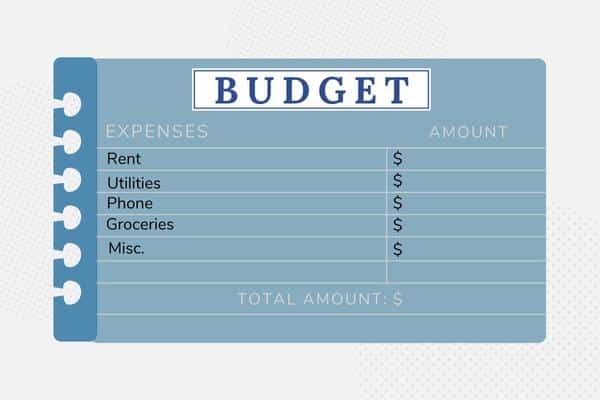Getting married is one of life’s most exciting events filled with planning and celebration. Wedding preparations might take center stage initially, but financial planning for the future is required for a successful long-term marriage. Seeing eye to eye with your partner on financial topics can help you remain aligned on your life plans and decisions. We review recommended financial considerations as you enter into marriage.
General Financial Discussions
Your finances should never be the crux of why you get married, but they should be discussed to ensure you’re on the same page and to avoid future conflicts. Money is a frequent source of friction in marriages. Having upfront discussions can set the course for how you relate and agree on financial matters.
Understanding spending habits and financial objectives is key. We typically recommend beginning conversations by discussing your long-term financial goals such as:
- Career objectives.
- Ideal retirement ages.
- Buying versus renting a home.
- Lifestyle preferences.
- Thoughts on having kids.
- What kind of lifestyle do you wish to provide for them?
- Will both spouses work, or will one stay home?
- Do you plan to elect public school or private school?
- What are your thoughts about funding college education?
Allocation of Income, Spending and Saving
Beyond discussing your goals, you also need to discuss thoughts on how to achieve them. Spouses frequently earn different levels of income, creating questions about how finances will be allocated in the marriage. Will the higher earning spouse cover a larger percentage of expenses and savings, or perhaps particular items such as rent or mortgage payments? Might there be differences in how much you save as a percentage of your income toward common goals?
There are no right or wrong answers to these questions as long as your combined approach leads you to your mutual goals. Sometimes the answers relate to perceived fairness. Sometimes they relate to ease of paying bills. They could also be based upon taxes. For example, the lower income spouse might contribute a greater percentage of earnings into pre-tax retirement savings to help minimize your combined taxable income.
The most important aspect is starting a marriage with a clear understanding of how you will allocate finances, spending and savings.
Health Insurance Coverage
One financial benefit post marriage might be the ability to reduce your combined health insurance expenses by merging your coverage under one plan. It’s advisable to review each spouse’s premium expenses for individual versus married coverage. Beyond premiums, be sure to consider out-of-pocket costs such as deductibles, co-pays, and other expenses. Also consider your access to health providers depending on if the plan works as an HMO or PPO plan. HMO plans require referrals to specialist providers whereas PPO plans allow you to go directly to a specialist if needed. Finally, ask your doctors if they will accept coverage from a new provider. Not all doctors accept all insurance plans.
Opening Joint Accounts
Frequent questions that newlyweds face is whether to open a joint bank account or fully combine their accounts.
It is often advisable to have at least one joint account, even if it represents a fraction of your overall savings. Doing so allows both spouses access to funds that are needed to cover recurring expenses in the event that a bill needs to be paid. Combining your accounts can also offer a sense of unity in your finances, allowing greater transparency and openness toward your objectives.
While there are benefits to combining your assets, there are two notable considerations. First, funds held in joint accounts are fully accessible to both spouses to make deposits and withdrawals. Additionally, combining premarital assets in a joint account could negate any potential asset protection should the marriage end in divorce.
Prenuptial Agreements
Depending upon the level of your accumulated assets prior to getting married, you might wish to consider entering in a prenuptial agreement. Such an agreement can protect your premarital assets in the event of divorce. If such a legal structure is of interest, it is best to have advance discussions, perhaps before getting engaged to avoid or minimize discord.
If you are contemplating a prenuptial agreement but have angst about how to broach the topic, remember that the document only protects existing assets. Future marital income and savings will be marital assets. Discussing approaches to such marital income and savings can help to create alignment.
There are a few important things to know if you do elect to have a prenuptial agreement. Preparing and executing the agreement can take a few months. It should not be signed just before the wedding to avoid any argument of signing it under duress. When you begin the process, both parties will need to disclose all of their assets. Additionally, each partner needs to have separate legal representation before executing the document. Advance discussion and planning are always best.
Long-term enjoyment in a marriage often centers around agreement on key issues. Being in accord on money matters is an essential aspect of a successful marriage. SageVest frequently advises clients on how to approach and discuss marital finances, whether entering a marriage or in an established one. We always approach such discussions by overlaying personal objectives and sensitivities. Please contact us if we can assist in these important, yet delicate discussions.




